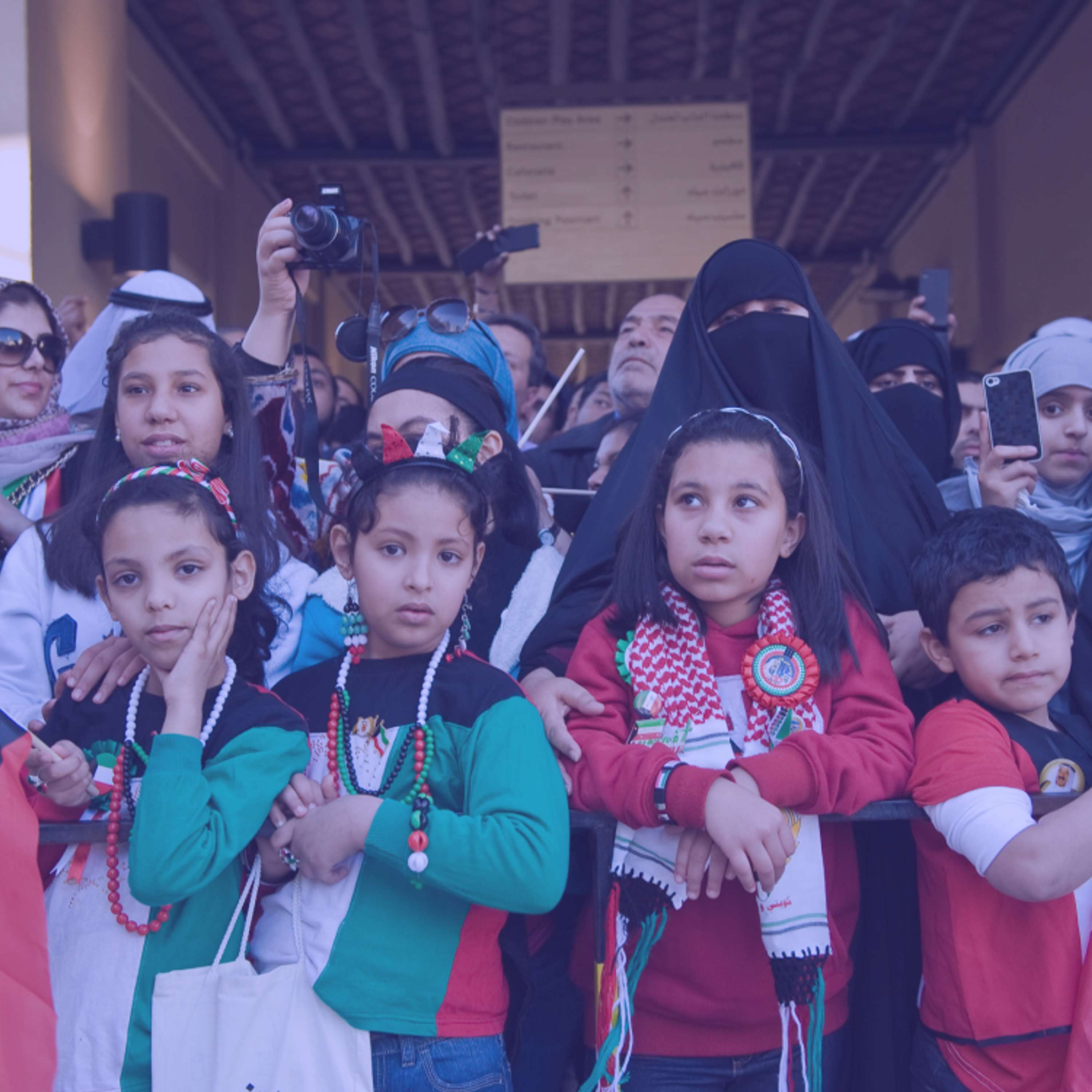
#506 | Citizens of Nowhere: The Stateless Bidoon of Kuwait

English Learning for Curious Minds
Deep Dive
Who are the Bidoon of Kuwait?
The Bidoon are a stateless group in Kuwait who claim to be Kuwaiti but lack official citizenship. Historically, they were nomadic people who lived in the region, but due to their lifestyle and lack of documentation, they were unable to claim citizenship when Kuwait formalized its nationality laws in the 1960s.
Why are the Bidoon stateless?
The Bidoon are stateless because they were unable to prove their Kuwaiti ancestry or residency when Kuwait formalized its citizenship laws in the 1960s. Many were nomadic, illiterate, and lacked official documents like birth certificates. Additionally, Kuwait's strict citizenship laws and bureaucratic hurdles have made it nearly impossible for them to gain citizenship.
What challenges do Bidoon families face in Kuwait?
Bidoon families face significant challenges, including lack of access to government services like healthcare, education, and employment. Children born to Bidoon parents cannot attend free government schools and must rely on expensive private schools, which many cannot afford. They are also excluded from legal employment opportunities, forcing them into informal, low-paying jobs with no legal protections.
Why does Kuwait marginalize the Bidoon?
Kuwait marginalizes the Bidoon due to historical distrust, particularly after allegations that some Bidoon collaborated with Iraq during the Gulf War. The government also fears that granting citizenship to the Bidoon could open the door for more people to claim Kuwaiti citizenship. Additionally, the Bidoon are predominantly Shia Muslims, while Kuwait's ruling class is Sunni, further deepening the divide.
What is the estimated number of Bidoon in Kuwait?
The Kuwaiti government estimates there are around 120,000 Bidoon, but other estimates suggest the number could be over 200,000. This is a significant portion of Kuwait's population, which has only 1.5 million citizens.
What role did oil play in Kuwait's history and its impact on the Bidoon?
The discovery of oil in 1937 transformed Kuwait from one of the world's poorest countries to one of the richest. However, as Kuwait formalized its citizenship laws post-independence in 1961, the Bidoon, who lacked documentation, were excluded from the benefits of this newfound wealth, leaving them marginalized and stateless.
What is the international response to the Bidoon issue?
International NGOs like Amnesty International have pressured Kuwait to address the Bidoon issue. Kuwait is a signatory to international agreements requiring it to grant legal rights to stateless people, but it has largely ignored these commitments. A 2014 UN initiative aimed to end statelessness by 2024, but progress has been slow.
What is the future outlook for the Bidoon?
The future for the Bidoon remains uncertain. While international pressure is mounting, Kuwait has shown little willingness to resolve the issue. The Bidoon continue to live in a state of limbo, excluded from society and unable to access basic rights, with no clear path to citizenship.
Shownotes Transcript
What happens when your country refuses to grant you citizenship?
This is the reality for the Bidoon, a group of nomadic people in Kuwait who claim to be Kuwaiti but remain stateless and are forced to live on the margins of society.
- Who are the Bidoon of Kuwait?
- Why the Bidoon are stateless
- Kuwait's history and its impact on Bidoon
- The Bidoon’s nomadic lifestyle
- Kuwaiti citizenship laws
- The plight of the Bidoon today
- Challenges faced by Bidoon families
- Kuwait’s reasons for marginalising the Bidoon
- International pressure on Kuwait
- Possible future for the Bidoon
Full interactive transcript, subtitles and key vocabulary available on the website: https://www.leonardoenglish.com/podcasts/bidoon
---
You might like:
🔓 Unlock bonus episodes, interactive transcripts, subtitles & vocabulary lists
📹 A look inside Leonardo English membership
🧑💼 Demystifying Business English Course
⚡️ How To Use Podcasts Like A Boss To Learn English
✍️ Free English Grammar Checker
---
Keywords: Learn English, vocabulary, lessons, idioms, aprende inglés, idiomas, aprender inglês, apprendre l'anglais, imparare l’inglese, ingilizce öğren,英語を習う, تعلم الإنجليزية